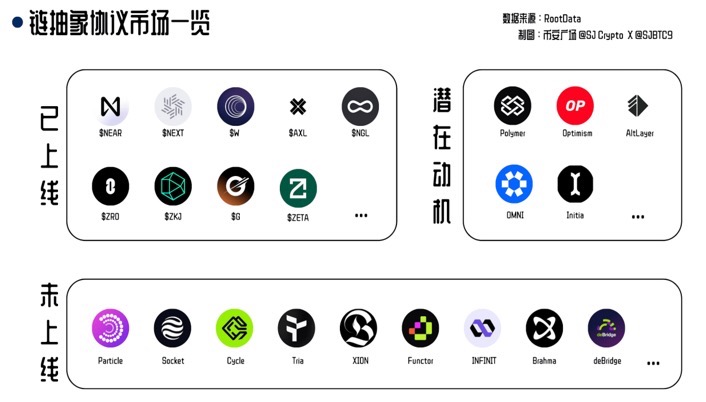Bitget: Top 4 in global daily trading volume!
Please also display BTC in AR61.26%
New listings on Bitget : Pi Network
BTC/USDT$82897.97 (-1.69%)Fear at Greed Index32(Fear)
Altcoin season index:0(Bitcoin season)
Coins listed in Pre-MarketPAWS,WCTTotal spot Bitcoin ETF netflow -$93.2M (1D); +$445.2M (7D).Welcome gift package para sa mga bagong user na nagkakahalaga ng 6200 USDT.Claim now
Trade anumang oras, kahit saan gamit ang Bitget app. I-download ngayon
Bitget: Top 4 in global daily trading volume!
Please also display BTC in AR61.26%
New listings on Bitget : Pi Network
BTC/USDT$82897.97 (-1.69%)Fear at Greed Index32(Fear)
Altcoin season index:0(Bitcoin season)
Coins listed in Pre-MarketPAWS,WCTTotal spot Bitcoin ETF netflow -$93.2M (1D); +$445.2M (7D).Welcome gift package para sa mga bagong user na nagkakahalaga ng 6200 USDT.Claim now
Trade anumang oras, kahit saan gamit ang Bitget app. I-download ngayon
Bitget: Top 4 in global daily trading volume!
Please also display BTC in AR61.26%
New listings on Bitget : Pi Network
BTC/USDT$82897.97 (-1.69%)Fear at Greed Index32(Fear)
Altcoin season index:0(Bitcoin season)
Coins listed in Pre-MarketPAWS,WCTTotal spot Bitcoin ETF netflow -$93.2M (1D); +$445.2M (7D).Welcome gift package para sa mga bagong user na nagkakahalaga ng 6200 USDT.Claim now
Trade anumang oras, kahit saan gamit ang Bitget app. I-download ngayon

May kaugnayan sa coin
Price calculator
Kasaysayan ng presyo
Paghula ng presyo
Teknikal na pagsusuri
Gabay sa pagbili ng coin
kategorya ng Crypto
Profit calculator

Gas presyoGAS
Listed
Quote pera:
PHP
₱152.49-3.76%1D
Price chart
TradingView
Last updated as of 2025-03-30 01:45:19(UTC+0)
Market cap:₱9,910,835,343.73
Ganap na diluted market cap:₱9,910,835,343.73
Volume (24h):₱273,393,551.32
24h volume / market cap:2.75%
24h high:₱159.36
24h low:₱149.36
All-time high:₱5,590.97
All-time low:₱34.36
Umiikot na Supply:64,992,332 GAS
Total supply:
64,992,331GAS
Rate ng sirkulasyon:100.00%
Max supply:
--GAS
Price in BTC:0.{4}3204 BTC
Price in ETH:0.001444 ETH
Price at BTC market cap:
₱1,453,312.8
Price at ETH market cap:
₱195,984.06
Mga kontrata:
0xdE41...de60EfF(Neo)
Higit pa
Ano ang nararamdaman mo tungkol sa Gas ngayon?
Tandaan: Ang impormasyong ito ay para sa sanggunian lamang.
Presyo ng Gas ngayon
Ang live na presyo ng Gas ay ₱152.49 bawat (GAS / PHP) ngayon na may kasalukuyang market cap na ₱9.91B PHP. Ang 24 na oras na dami ng trading ay ₱273.39M PHP. Ang presyong GAS hanggang PHP ay ina-update sa real time. Ang Gas ay -3.76% sa nakalipas na 24 na oras. Mayroon itong umiikot na supply ng 64,992,332 .
Ano ang pinakamataas na presyo ng GAS?
Ang GAS ay may all-time high (ATH) na ₱5,590.97, na naitala noong 2018-01-15.
Ano ang pinakamababang presyo ng GAS?
Ang GAS ay may all-time low (ATL) na ₱34.36, na naitala noong 2020-03-13.
Bitcoin price prediction
Kailan magandang oras para bumili ng GAS? Dapat ba akong bumili o magbenta ng GAS ngayon?
Kapag nagpapasya kung buy o mag sell ng GAS, kailangan mo munang isaalang-alang ang iyong sariling diskarte sa pag-trading. Magiiba din ang aktibidad ng pangangalakal ng mga long-term traders at short-term traders. Ang Bitget GAS teknikal na pagsusuri ay maaaring magbigay sa iyo ng sanggunian para sa trading.
Ayon sa GAS 4 na teknikal na pagsusuri, ang signal ng kalakalan ay Malakas na nagbebenta.
Ayon sa GAS 1d teknikal na pagsusuri, ang signal ng kalakalan ay Malakas na nagbebenta.
Ayon sa GAS 1w teknikal na pagsusuri, ang signal ng kalakalan ay Malakas na nagbebenta.
Ano ang magiging presyo ng GAS sa 2026?
Batay sa makasaysayang modelo ng hula sa pagganap ng presyo ni GAS, ang presyo ng GAS ay inaasahang aabot sa ₱181.48 sa 2026.
Ano ang magiging presyo ng GAS sa 2031?
Sa 2031, ang presyo ng GAS ay inaasahang tataas ng +16.00%. Sa pagtatapos ng 2031, ang presyo ng GAS ay inaasahang aabot sa ₱455.56, na may pinagsama-samang ROI na +190.30%.
Gas price history (PHP)
The price of Gas is -61.66% over the last year. The highest price of GAS in PHP in the last year was ₱439.52 and the lowest price of GAS in PHP in the last year was ₱142.95.
TimePrice change (%) Lowest price
Lowest price Highest price
Highest price 
 Lowest price
Lowest price Highest price
Highest price 
24h-3.76%₱149.36₱159.36
7d-10.12%₱149.36₱177.13
30d-21.24%₱144.69₱209.32
90d-42.07%₱144.69₱393.74
1y-61.66%₱142.95₱439.52
All-time+49.82%₱34.36(2020-03-13, 5 taon na ang nakalipas )₱5,590.97(2018-01-15, 7 taon na ang nakalipas )
Gas impormasyon sa merkado
Gas's market cap history
Gas market
Gas holdings by concentration
Whales
Investors
Retail
Gas addresses by time held
Holders
Cruisers
Traders
Live coinInfo.name (12) price chart

Gas na mga rating
Mga average na rating mula sa komunidad
4.4
Ang nilalamang ito ay para sa mga layuning pang-impormasyon lamang.
GAS sa lokal na pera
1 GAS To MXN$54.21 GAS To GTQQ20.511 GAS To CLP$2,502.91 GAS To UGXSh9,735.481 GAS To HNLL68.021 GAS To ZARR48.631 GAS To TNDد.ت8.271 GAS To IQDع.د3,483.11 GAS To TWDNT$88.281 GAS To RSDдин.288.871 GAS To DOP$168.081 GAS To MYRRM11.791 GAS To GEL₾7.381 GAS To UYU$112.121 GAS To MADد.م.25.721 GAS To AZN₼4.521 GAS To OMRر.ع.1.021 GAS To SEKkr26.621 GAS To KESSh343.691 GAS To UAH₴110.29
- 1
- 2
- 3
- 4
- 5
Last updated as of 2025-03-30 01:45:19(UTC+0)
Paano Bumili ng Gas(GAS)

Lumikha ng Iyong Libreng Bitget Account
Mag-sign up sa Bitget gamit ang iyong email address/mobile phone number at gumawa ng malakas na password para ma-secure ang iyong account.

Beripikahin ang iyong account
I-verify ang iyong pagkakakilanlan sa pamamagitan ng paglalagay ng iyong personal na impormasyon at pag-upload ng wastong photo ID.

Convert Gas to GAS
Gumamit ng iba't ibang mga pagpipilian sa pagbabayad upang bumili ng Gas sa Bitget. Ipapakita namin sa iyo kung paano.
Matuto paI-trade ang GAS panghabang-buhay na hinaharap
Pagkatapos ng matagumpay na pag-sign up sa Bitget at bumili ng USDT o GAS na mga token, maaari kang magsimulang mag-trading ng mga derivatives, kabilang ang GAS futures at margin trading upang madagdagan ang iyong inccome.
Ang kasalukuyang presyo ng GAS ay ₱152.49, na may 24h na pagbabago sa presyo ng -3.76%. Maaaring kumita ang mga trader sa pamamagitan ng alinman sa pagtagal o pagkukulang saGAS futures.
Sumali sa GAS copy trading sa pamamagitan ng pagsunod sa mga elite na traders.
Pagkatapos mag-sign up sa Bitget at matagumpay na bumili ng mga token ng USDT o GAS, maaari ka ring magsimula ng copy trading sa pamamagitan ng pagsunod sa mga elite na traders.
Gas balita

23 na mga protocol, isang pangkalahatang-ideya ng kasalukuyang pattern ng chain abstraction protocol
Eric SJ(重开版)•2024-09-02 06:41
Buy more
Ang mga tao ay nagtatanong din tungkol sa presyo ng Gas.
Ano ang kasalukuyang presyo ng Gas?
The live price of Gas is ₱152.49 per (GAS/PHP) with a current market cap of ₱9,910,835,343.73 PHP. Gas's value undergoes frequent fluctuations due to the continuous 24/7 activity in the crypto market. Gas's current price in real-time and its historical data is available on Bitget.
Ano ang 24 na oras na dami ng trading ng Gas?
Sa nakalipas na 24 na oras, ang dami ng trading ng Gas ay ₱273.39M.
Ano ang all-time high ng Gas?
Ang all-time high ng Gas ay ₱5,590.97. Ang pinakamataas na presyong ito sa lahat ng oras ay ang pinakamataas na presyo para sa Gas mula noong inilunsad ito.
Maaari ba akong bumili ng Gas sa Bitget?
Oo, ang Gas ay kasalukuyang magagamit sa sentralisadong palitan ng Bitget. Para sa mas detalyadong mga tagubilin, tingnan ang aming kapaki-pakinabang na gabay na Paano bumili ng gas .
Maaari ba akong makakuha ng matatag na kita mula sa investing sa Gas?
Siyempre, nagbibigay ang Bitget ng estratehikong platform ng trading, na may mga matatalinong bot sa pangangalakal upang i-automate ang iyong mga pangangalakal at kumita ng kita.
Saan ako makakabili ng Gas na may pinakamababang bayad?
Ikinalulugod naming ipahayag na ang estratehikong platform ng trading ay magagamit na ngayon sa Bitget exchange. Nag-ooffer ang Bitget ng nangunguna sa industriya ng mga trading fee at depth upang matiyak ang kumikitang pamumuhunan para sa mga trader.
Saan ako makakabili ng Gas (GAS)?
Video section — quick verification, quick trading

How to complete identity verification on Bitget and protect yourself from fraud
1. Log in to your Bitget account.
2. If you're new to Bitget, watch our tutorial on how to create an account.
3. Hover over your profile icon, click on “Unverified”, and hit “Verify”.
4. Choose your issuing country or region and ID type, and follow the instructions.
5. Select “Mobile Verification” or “PC” based on your preference.
6. Enter your details, submit a copy of your ID, and take a selfie.
7. Submit your application, and voila, you've completed identity verification!
Ang mga investment sa Cryptocurrency, kabilang ang pagbili ng Gas online sa pamamagitan ng Bitget, ay napapailalim sa market risk. Nagbibigay ang Bitget ng madali at convenient paraan para makabili ka ng Gas, at sinusubukan namin ang aming makakaya upang ganap na ipaalam sa aming mga user ang tungkol sa bawat cryptocurrency na i-eooffer namin sa exchange. Gayunpaman, hindi kami mananagot para sa mga resulta na maaaring lumabas mula sa iyong pagbili ng Gas. Ang page na ito at anumang impormasyong kasama ay hindi isang pag-endorso ng anumang partikular na cryptocurrency.
Bitget Insights

AshuBajwaB60
8h
# __The Future of Urban Planning: Designing Sustainable and Resilient Cities__
As the world's population continues to urbanize, cities are facing unprecedented challenges, from climate change and environmental degradation to social inequality and economic instability. To address these challenges, urban planners are rethinking the way cities are designed, prioritizing sustainability, resilience, and livability. In this article, we'll explore the future of urban planning, highlighting innovative strategies and technologies that are transforming the way we build and interact with cities.
# Sustainable Urban Planning Strategies
Sustainable urban planning strategies prioritize environmental, social, and economic sustainability, including:
1. *Green Infrastructure*: Incorporating green spaces, parks, and gardens into urban design to mitigate the urban heat island effect, manage stormwater runoff, and improve air quality.
2. *Mixed-Use Development*: Encouraging mixed-use development, which combines residential, commercial, and recreational spaces, to reduce the need for lengthy commutes and promote walkability.
3. *Public Transportation*: Investing in efficient and reliable public transportation systems, such as buses, trains, and bike-share programs, to reduce reliance on personal vehicles and decrease congestion.
4. *Energy-Efficient Buildings*: Designing energy-efficient buildings that incorporate renewable energy sources, such as solar and wind power, to reduce energy consumption and greenhouse gas emissions.
# Resilient Urban Planning Strategies
Resilient urban planning strategies prioritize adaptability and flexibility in the face of uncertainty and change, including:
1. *Climate-Resilient Design*: Designing cities and buildings to withstand the impacts of climate change, such as sea-level rise, extreme weather events, and heatwaves.
2. *Adaptive Reuse*: Repurposing and reusing existing buildings and infrastructure to reduce waste, conserve resources, and promote urban renewal.
3. *Community Engagement*: Fostering community engagement and participation in urban planning processes to ensure that cities are designed to meet the needs of all residents.
4. *Innovative Technologies*: Leveraging innovative technologies, such as smart grids, green roofs, and urban agriculture, to enhance urban resilience and sustainability.
# Innovative Urban Planning Technologies
Innovative urban planning technologies are transforming the way cities are designed and managed, including:
1. *Geographic Information Systems (GIS)*: Using GIS to analyze and visualize urban data, such as population density, transportation patterns, and environmental factors.
2. *Building Information Modeling (BIM)*: Utilizing BIM to design and manage buildings, reducing construction costs and improving energy efficiency.
3. *Smart City Sensors*: Deploying smart city sensors to monitor and manage urban infrastructure, such as traffic flow, air quality, and energy usage.
4. *Urban Simulation Modeling*: Using urban simulation modeling to predict and analyze the impacts of urban planning decisions, such as population growth, transportation patterns, and environmental changes.
# Conclusion
The future of urban planning is focused on designing sustainable and resilient cities that prioritize environmental, social, and economic sustainability. By incorporating innovative strategies and technologies, urban planners can create cities that are adaptable, flexible, and responsive to the needs of all residents.
# Recommendations
1. *Integrate Green Infrastructure*: Incorporate green infrastructure, such as parks, gardens, and green roofs, into urban design to mitigate the urban heat island effect and improve air quality.
2. *Promote Mixed-Use Development*: Encourage mixed-use development, which combines residential, commercial, and recreational spaces, to reduce the need for lengthy commutes and promote walkability.
3. *Invest in Public Transportation*: Invest in efficient and reliable public transportation systems, such as buses, trains, and bike-share programs, to reduce reliance on personal vehicles and decrease congestion.
4. *Support Innovative Technologies*: Support innovative technologies, such as smart grids, green roofs, and urban agriculture, to enhance urban resilience and sustainability.
5. *Foster Community Engagement*: Foster community engagement and participation in urban planning processes to ensure that cities are designed to meet the needs of all residents.
ISLAND+0.44%
GAS+0.71%

AshuBajwaB60
8h
# __The Power of Renewable Energy: Harnessing the Sun, Wind, and Water to Create a Sustainable
As the world grapples with the challenges of climate change, energy security, and sustainable development, renewable energy has emerged as a vital component of a cleaner, greener future. The sun, wind, and water offer vast, untapped energy sources that can power our homes, industries, and transportation systems, reducing our reliance on fossil fuels and mitigating the impacts of climate change. In this article, we'll explore the power of renewable energy, its benefits, challenges, and potential applications.
# Benefits of Renewable Energy
Renewable energy offers numerous benefits, including:
1. *Reduced Greenhouse Gas Emissions*: Renewable energy sources emit significantly less greenhouse gases, contributing less to climate change.
2. *Energy Security*: Renewable energy reduces dependence on imported fossil fuels, improving energy security and reducing the risks associated with price volatility.
3. *Job Creation and Economic Growth*: The renewable energy industry is creating new job opportunities and driving economic growth, particularly in rural areas.
4. *Improved Air Quality*: Renewable energy reduces air pollution, improving public health and quality of life.
5. *Water Conservation*: Most renewable energy sources require very little water to operate, unlike traditional fossil fuel-based power plants.
# Challenges Facing Renewable Energy
Despite the benefits, renewable energy faces several challenges, including:
1. *Intermittency*: Renewable energy sources like solar and wind are intermittent, requiring energy storage solutions to ensure a stable power supply.
2. *High Upfront Costs*: While the cost of renewable energy technologies is decreasing, the upfront investment can still be prohibitively expensive for some individuals and businesses.
3. *Infrastructure and Grid Integration*: Widespread adoption of renewable energy requires significant investments in infrastructure, including transmission lines, storage facilities, and grid management systems.
4. *Policy and Regulation*: Renewable energy development is often hindered by inadequate policies and regulations, which can create uncertainty and barriers to investment.
# Potential Applications of Renewable Energy
Renewable energy has numerous potential applications, including:
1. *Power Generation*: Renewable energy can power homes, industries, and transportation systems, reducing our reliance on fossil fuels.
2. *Heating and Cooling*: Renewable energy can provide heating and cooling solutions, such as solar water heaters and geothermal heat pumps.
3. *Transportation*: Renewable energy can power electric vehicles, reducing greenhouse gas emissions and improving air quality.
4. *Rural Development*: Renewable energy can provide energy access to rural communities, promoting economic development and improving quality of life.
# Conclusion
Renewable energy is a vital component of a sustainable future, offering numerous benefits, including reduced greenhouse gas emissions, energy security, job creation, and improved air quality. While challenges remain, the potential applications of renewable energy are vast, and continued innovation, investment, and policy support can help overcome the barriers to widespread adoption.
# Recommendations
1. *Invest in Renewable Energy Technologies*: Invest in renewable energy technologies, such as solar panels, wind turbines, and energy storage systems.
2. *Support Renewable Energy Policies*: Support policies and regulations that promote renewable energy development, such as tax incentives, net metering laws, and renewable portfolio standards.
3. *Encourage Energy Efficiency*: Encourage energy efficiency practices, such as using energy-efficient appliances, turning off lights, and insulating buildings.
4. *Promote Education and Awareness*: Promote education and awareness about the benefits of renewable energy, its potential applications, and the challenges it faces.
5. *Support Research and Development*: Support research and development in renewable energy technologies, focusing on improving efficiency, reducing costs, and addressing intermittency challenges.
FUEL+3.46%
GAS+0.71%
URBestTrader
9h
Why ETH is Stuck at $1800 – What’s Next?
Ethereum (ETH), the second-largest cryptocurrency, has been hovering around the $1800 mark for quite some time. Traders and investors are wondering: Why is ETH stuck at this level, and where is it headed next? Let’s dive into the factors affecting its price and what could drive the next move.
1. Market Sentiment and Macro Factors
Global macroeconomic conditions, including inflation rates, interest rate hikes, and regulatory uncertainty, have kept crypto markets in check. The Federal Reserve’s monetary policy plays a crucial role in risk asset movements, including ETH. When liquidity tightens, crypto struggles to gain momentum.
2. ETH’s On-Chain Activity and Demand
Ethereum’s network activity, including DeFi and NFT transactions, has slowed down compared to its 2021 peak. Lower transaction volumes and reduced demand for ETH gas fees contribute to price stagnation. However, developments like Ethereum’s layer-2 scaling solutions (Arbitrum, Optimism, zkSync) are helping increase adoption and reduce costs.
3. Institutional Interest and ETF Speculations
While Bitcoin ETFs have gained traction, Ethereum ETF approvals remain uncertain. If ETH ETFs get the green light, institutional demand could surge, pushing ETH beyond $1800. The recent BlackRock and Fidelity interest in ETH-related products indicates potential for long-term growth.
4. Technical Analysis – Resistance at $1800
From a technical perspective, ETH faces strong resistance at $1800. Several attempts to break above this level have resulted in rejections. If ETH can establish strong support above this price, it could aim for the next major resistance at $2000-$2200. However, failure to hold could see ETH drop to $1600 or lower.
5. The Road Ahead – Bullish or Bearish?
Bullish Case: If ETH ETFs get approved, on-chain activity picks up, and the macro environment improves, ETH could rally past $2000.
Bearish Case: If regulatory pressure increases and market sentiment weakens, ETH might struggle to sustain above $1800 and drop to key support zones.
Final Thoughts
Ethereum’s current price stagnation is a mix of macroeconomic headwinds, reduced network activity, and technical resistance. However, upcoming catalysts like ETFs, layer-2 adoption, and macro improvements could push ETH beyond $1800. Are you bullish or bearish on ETH? Share your thoughts in the comments!
🚀 Follow for more crypto insights! 🚀
MOVE-0.11%
ETH+0.33%

AshuBajwaB60
9h
# __The Impact of Climate Change on Global Food Systems: A Growing Concern__
Climate change is havin
Climate change is having a profound impact on global food systems, affecting the availability, quality, and accessibility of food. Rising temperatures, changing precipitation patterns, and increased frequency of extreme weather events are altering the conditions under which crops are grown, livestock are raised, and food is produced, processed, and distributed. In this article, we'll examine the effects of climate change on global food systems and explore potential solutions to mitigate these impacts.
# Effects of Climate Change on Food Systems
Climate change is affecting food systems in various ways, including:
1. *Changes in Temperature and Precipitation Patterns*: Rising temperatures and changing precipitation patterns are altering the growing conditions for crops, leading to reduced yields, lower quality crops, and changes in growing seasons.
2. *Increased Frequency of Extreme Weather Events*: Extreme weather events, such as droughts, floods, and heatwaves, are becoming more frequent and intense, damaging crops, disrupting food supplies, and affecting food prices.
3. *Shifts in Growing Seasons and Regions*: Climate change is causing shifts in growing seasons and regions, leading to changes in the types of crops that can be grown, the timing of planting and harvesting, and the distribution of food.
4. *Impacts on Livestock and Fisheries*: Climate change is affecting the health, productivity, and distribution of livestock and fisheries, leading to changes in the availability and quality of animal-based food products.
# Consequences of Climate Change on Food Security
The impacts of climate change on food systems have significant consequences for food security, including:
1. *Reduced Food Availability*: Climate change is reducing food availability by decreasing crop yields, altering growing seasons, and disrupting food supplies.
2. *Increased Food Prices*: Climate-related shocks to food systems can lead to price volatility, making food less accessible to vulnerable populations.
3. *Changes in Food Quality*: Climate change is affecting the quality of food, leading to changes in nutritional content, texture, and flavor.
4. *Increased Food Insecurity*: Climate change is exacerbating existing food security challenges, particularly for vulnerable populations, such as the poor, women, and children.
# Solutions to Mitigate the Impacts of Climate Change on Food Systems
To mitigate the impacts of climate change on food systems, we need to adopt a multi-faceted approach that includes:
1. *Sustainable Agriculture Practices*: Promote sustainable agriculture practices, such as agroforestry, permaculture, and regenerative agriculture, that enhance soil health, biodiversity, and ecosystem services.
2. *Climate-Smart Agriculture*: Implement climate-smart agriculture practices that take into account projected climate changes, such as using drought-tolerant crops, adjusting planting dates, and implementing conservation agriculture.
3. *Food System Resilience*: Enhance food system resilience by promoting diversification, local food systems, and urban agriculture.
4. *Climate Change Adaptation and Mitigation*: Support climate change adaptation and mitigation efforts, such as reducing greenhouse gas emissions, promoting renewable energy, and implementing climate-resilient infrastructure.
# Conclusion
Climate change is having a profound impact on global food systems, affecting the availability, quality, and accessibility of food. To mitigate these impacts, we need to adopt a multi-faceted approach that includes sustainable agriculture practices, climate-smart agriculture, food system resilience, and climate change adaptation and mitigation efforts.
# Recommendations
1. *Support Sustainable Agriculture Practices*: Support sustainable agriculture practices by promoting agroforestry, permaculture, and regenerative agriculture.
2. *Implement Climate-Smart Agriculture*: Implement climate-smart agriculture practices that take into account projected climate changes.
3. *Enhance Food System Resilience*: Enhance food system resilience by promoting diversification, local food systems, and urban agriculture.
4. *Support Climate Change Adaptation and Mitigation*: Support climate change adaptation and mitigation efforts, such as reducing greenhouse gas emissions and promoting renewable energy.
5. *Promote Climate-Resilient Infrastructure*: Promote climate-resilient infrastructure, such as climate-resilient roads, bridges, and storage facilities.
GAS+0.71%

AshuBajwaB60
9h
# __The Future of Sustainable Transportation: The Rise of Electric Vehicles__
As the world grapples with the challenges of climate change, air pollution, and energy sustainability, the transportation sector is undergoing a significant transformation. Electric vehicles (EVs) are emerging as a game-changer, offering a cleaner, more efficient, and cost-effective alternative to traditional fossil fuel-based transportation. In this article, we'll explore the rise of electric vehicles, their benefits, challenges, and potential applications.
# Benefits of Electric Vehicles
Electric vehicles offer numerous benefits, including:
1. *Zero Emissions*: EVs produce zero tailpipe emissions, reducing greenhouse gas emissions and air pollution in urban areas.
2. *Lower Operating Costs*: EVs are generally cheaper to run, with lower fuel costs (electricity is often less expensive than gasoline) and lower maintenance costs (fewer moving parts means less wear and tear).
3. *Improved Performance*: EVs typically have excellent acceleration and smooth, quiet operation.
4. *Government Incentives*: Many governments offer incentives, such as tax credits, rebates, and exemptions from certain fees, to encourage the adoption of EVs.
# Challenges Facing Electric Vehicles
Despite the benefits, EVs face several challenges, including:
1. *Limited Range and Charging Time*: EVs generally have limited range (typically between 200-300 miles) and charging time (although fast-charging technology is improving).
2. *Higher Upfront Costs*: EVs are often more expensive than traditional gasoline-powered vehicles, although costs are decreasing as technology improves.
3. *Limited Charging Infrastructure*: While charging infrastructure is expanding, it can still be a challenge to find charging stations, particularly in rural areas.
4. *Battery Durability and Recycling*: Concerns remain about the durability and recyclability of EV batteries.
# Potential Applications of Electric Vehicles
Electric vehicles have numerous potential applications, including:
1. *Personal Transportation*: EVs are ideal for personal transportation, particularly for short- to medium-distance trips.
2. *Public Transportation*: EVs are being increasingly adopted for public transportation, such as buses and taxis.
3. *Commercial Fleets*: EVs are being used for commercial fleets, such as delivery vans and trucks.
4. *Autonomous Vehicles*: EVs are being integrated into autonomous vehicle systems, enabling efficient and sustainable transportation.
# Conclusion
The rise of electric vehicles is transforming the transportation sector, offering a cleaner, more efficient, and cost-effective alternative to traditional fossil fuel-based transportation. While challenges remain, the benefits of EVs make them an attractive option for individuals, businesses, and governments. As technology continues to improve and charging infrastructure expands, EVs are poised to play an increasingly important role in shaping the future of sustainable transportation.
# Recommendations
1. *Consider Purchasing an EV*: If you're in the market for a new vehicle, consider purchasing an EV, particularly if you have access to charging infrastructure.
2. *Support EV-Friendly Policies*: Encourage your government to implement policies that support the adoption of EVs, such as tax incentives, rebates, and investments in charging infrastructure.
3. *Invest in EV Technology*: Consider investing in companies that specialize in EV technology, such as battery manufacturers, charging station operators, and EV manufacturers.
4. *Educate Yourself and Others*: Educate yourself and others about the benefits of EVs and the challenges they face, helping to promote a more sustainable transportation future.
5. *Encourage Businesses to Adopt EVs*: Encourage businesses to adopt EVs for their fleets, promoting a more sustainable and efficient transportation system.
FUEL+3.46%
GAS+0.71%
Mga kaugnay na asset
Mga sikat na cryptocurrencies
Isang seleksyon ng nangungunang 8 cryptocurrencies ayon sa market cap.
Kamakailang idinagdag
Ang pinakahuling idinagdag na cryptocurrency.



































Gas Social Data
Sa nakalipas na 24 na oras, ang marka ng sentimento ng social media para sa Gas ay 3, at ang trend ng presyo ng social media patungo sa Gas ay Bullish. Ang overall na marka ng social media ng Gas ay 0, na nagra-rank ng 753 sa lahat ng cryptocurrencies.
Ayon sa LunarCrush, sa nakalipas na 24 na oras, binanggit ang mga cryptocurrencies sa social media nang 1,058,120 (na) beses, na binanggit ang Gas na may frequency ratio na 0.01%, na nagra-rank ng 366 sa lahat ng cryptocurrencies.
Sa nakalipas na 24 na oras, mayroong total 656 na natatanging user na tumatalakay sa Gas, na may kabuuang Gas na pagbanggit ng 67. Gayunpaman, kumpara sa nakaraang 24 na oras, ang bilang ng mga natatanging user pagtaas ng 53%, at ang kabuuang bilang ng mga pagbanggit ay bumaba ng 18%.
Sa Twitter, mayroong kabuuang 1 na tweet na nagbabanggit ng Gas sa nakalipas na 24 na oras. Kabilang sa mga ito, ang 0% ay bullish sa Gas, 100% ay bearish sa Gas, at ang 0% ay neutral sa Gas.
Sa Reddit, mayroong 2 na mga post na nagbabanggit ng Gas sa nakalipas na 24 na oras. Kung ikukumpara sa nakaraang 24 na oras, ang bilang ng mga pagbanggit bumaba ng 0% . Bukod pa rito, mayroong 0 na komento na nagbabanggit ng Gas. Kung ikukumpara sa nakaraang 24 na oras, ang bilang ng mga pagbanggit ay bumaba ng 0%.
Lahat ng panlipunang pangkalahatang-ideya
3